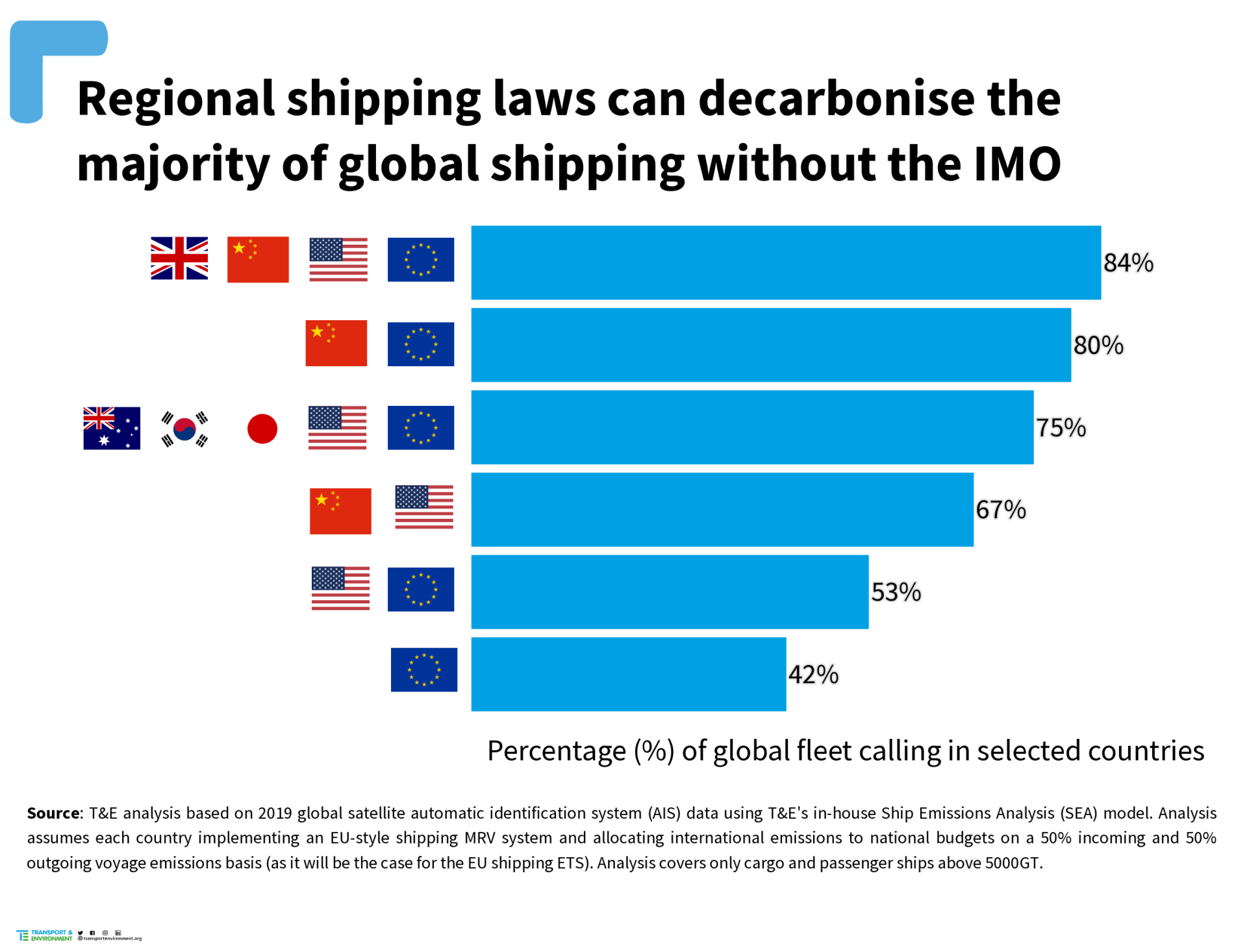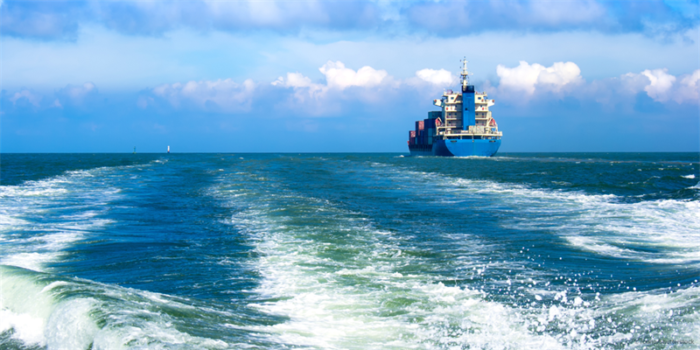84% of shipping traffic goes through Europe, China and the US, a new Transport & Environment (T&E) study shows. If these economies were to regulate ships calling at their ports, they could decarbonise the lion’s share of the industry and in doing so bypass the “ineffective” IMO, says T&E.
Main findings
When looking at single countries’ share of emissions per voyage, the three biggest economies, namely the EU, China and the US are responsible for the most amount of emissions. The EU is responsible for 14.4%. China and the USA are responsible for 15.1% and 7.8% respectively.
Singapore has a large number of emissions and comes in fourth with 7.19%, due to its role as a marine bunker hub. The following complete the top 10 emitting countries:
- Japan with 5.2%
- Australia with 4.3%
- Brazil with 3.9%
- India with 2.8%
- South Korea with 2.5%
- Indonesia with 2.0%.
The results show that allocating emissions per voyage – as opposed to per flag, or where the fuel was purchased – accurately reflect countries’ trade patterns given that the largest economies come out top.
Nonetheless, emissions are not concentrated in a few countries. Together, China, the US and the EU do not together count for a majority of emissions, only 38.4%.
In this sense, it may appear as if regional policy would have limited impact unless implemented by a majority of countries. This may pose a concern for developing countries that lack the necessary administrative capacity to implement domestic clean shipping legislation
the report states.
Looking instead at where the global shipping fleet calls provides a better representation of the impact of regional policy. In fact, 42% of the global fleet calls at EU ports and a total of 80% of the fleet calls at either China or the EU.
53% of the fleet call either in the EU or the US, 67% call in the US or China and 75% of the fleet call in the 5 biggest Global North shipping blocs: the EU, USA, Japan, South Korea and Australia.
Finally, 84% of the fleet call either in Europe (UK and the EU), the US or China. In other words, together China, Europe and the US could decarbonise 84% of the global shipping sector if they implemented a zero emission mandate for ships calling at their ports.
Efforts to decarbonise shipping at the IMO have so far been miserable. The need for consensus at the global level has brought us nowhere. But there is a much easier way to do it. With the vast majority of ships passing through Europe, China and the US, these leading economies can unilaterally regulate emissions without relying on the ineffective IMO
Jacob Armstrong, sustainable shipping officer at T&E, said.
 It should be noted that a zero-emission mandate in these countries may not immediately lead to decarbonisation of 84% of the fleet. This relates in part to the geographical scope chosen by each jurisdiction.
It should be noted that a zero-emission mandate in these countries may not immediately lead to decarbonisation of 84% of the fleet. This relates in part to the geographical scope chosen by each jurisdiction.
The European Commission, for instance, has only proposed to regulate 50% of emissions from international voyages. If the UK, China and the US replicate this approach, a significant amount of emissions would be addressed, but not the full 84% of the fleet that calls at those countries.
On the one hand, shipping companies could convert their ships and engines to zero-emission-ready fuels and technologies, but use ‘drop-in’ fossil fuels for unregulated voyages
T&E added, noting that “on the other hand, mandating zero-emission shipping on this geographical scope would lead to significant knock-on effects. Not only would technical improvements on ships lead to emissions reduction throughout the world, but zero-emission technology and fuels would also receive massive investments, reducing their costs throughout the world.”
Moreover, states may regulate a different geographical scope than the 50% scope proposed by the European Commission. Indeed, the EU itself regulates 100% of incoming and outgoing voyages under its Monitoring, Reporting and Verification (MRV) Regulation, while the European Parliament has proposed to regulate 100% of international voyages in the ETS from 2027 and both the European Parliament and the EU Council have proposed to regulate non-EU voyages, that is, voyages between nearby non-EU transhipment ports and other non-EU ports.
Turning to the impact on the Global South, the results show that developed countries can bear most of the burden without putting regulatory pressure on developing countries. If a few developed countries mandated zero-emission shipping, the Global South would avoid the administrative burden of policy implementation and enforcement
the report concluded.

































































